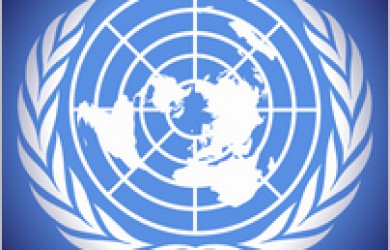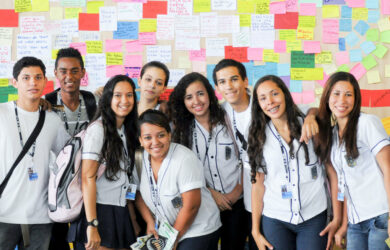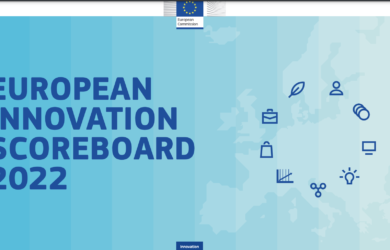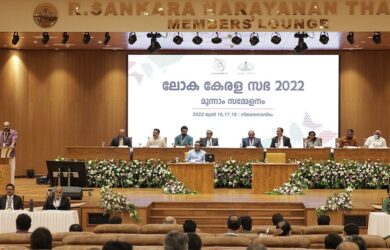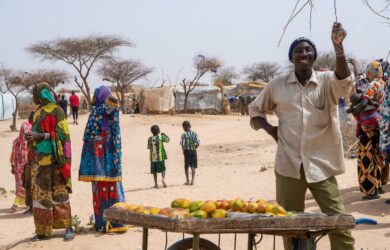- ABOUT US
- RESEARCH
- EDUCATION
- The Graduate School
- PhD Programme
- MSc Programmes
- Capacity Development
- News
- Design and Evaluation of Public Policies (DEPP)
- Design and Evaluation of Innovation Policies (DEIP)
- Evidence-Based Policy Research Methods (EPRM)
- Migration Management Diploma Programme (MMDP)
- Moving the Migration Policy Agenda Forward (MMPAF)
- Online Courses
- Short Courses (Masters)
- Tailor-made programmes
- UNU-MERIT, ITU Academy Training Centre
- Alumni
- Academic Funding
- NEWS
- EVENTS
- PUBLICATIONS
- LIBRARY
El Salvador’s Bitcoin policy: Regret or reward?
21 August 2023
New investigative podcast by UNU-MERIT alumnus narrates the story of this contentious policy In 2021, El Salvador became the first country in the world to declare bitcoin as an official currency alongside the U.S. dollar. But almost two years after this law came into effect, the initiative remains a failure. Bitcoin has barely been adopted by the population and the country is nearly 30 percent down in its cryptocurrency investment. [1] So why did the Salvadoran government think its Bitcoi...
Continue Reading →South Korea, Switzerland, Denmark: New report ranks global and European countries on innovation
06 July 2023
European Innovation Scoreboard 2023 released today The twenty-second edition of the European Innovation Scoreboard (EIS), which provides a comparative analysis of the research and innovation performance of EU Member States and selected third countries, was published today, 6 July 2023. The EIS presents and compares the relative strengths and weaknesses of countries’ research and innovation systems and helps policymakers assess areas in which they need to concentrate their efforts in ord...
Continue Reading →A peek into how European innovation is progressing – and being monitored
08 May 2023
A Q&A with innovation and technology policy expert Hugo Hollanders Few are better suited to discuss innovation policy at the pan-European level than Hugo Hollanders, Senior Researcher at UNU-MERIT and acting unit head of its Economics of Innovation and Technology Unit. For almost 25 years, Hollanders has been working with the European Commission (EC) on projects and reports as well as serving generally as a go-to expert on technology and innovation developments across the European Uni...
Continue Reading →UNU-MERIT Newsletter
24 January 2023
Our quarterly newsletter rounds up the latest news and events from UNU-MERIT and its School of Governance. We explore the push and pull of international development: innovation through science and entrepreneurship, and governance through public policy analysis. ...
Continue Reading →First Impressions: Publications in January 2023
20 January 2023
Using a Brazilian university as a case study, can international mobility shape students’ attitudes toward inequality? How can we implement more secure, more sustainable and more efficient migration governance? These are just two questions that have been tackled by our researchers in January 2023 — in two journal articles, a research report, three working papers and three PhD dissertations, among others. Click here for the full list of our most recent publications. Journal articles ‘V...
Continue Reading →European innovation leaders ranked in new report
05 October 2022
The European Commission has released the European Innovation Scoreboard 2022, which tracks innovation across the continent. It was prepared and coordinated by UNU-MERIT’s researchers Hugo Hollanders, Nordine Es-Sadki and Aishe Khalilova. The European Innovation Scoreboard provides a comparative analysis of innovation performance in EU countries, other European countries and regional neighbours. It assesses relative strengths and weaknesses of national innovation systems and helps countri...
Continue Reading →Bridging the Gap Between Academia and Policy in India
06 September 2022
At the invitation of the Government of Kerala, India, Dr Nanditha Mathew, Research Fellow, participated in the Loka Kerala Sabha convention as an independent expert contributor. Loka Kerala Sabha was formed to deepen the democratic space and debate on the directionality of policies by hearing the voices of experts in different fields, including those who are immigrants. In this interview, she outlines why academic and policy engagement at the state level has national and international imp...
Continue Reading →The Community of Innovation Survey: A Living Legacy of UNU-MERIT’s Successful Track Record in Innovation
11 August 2022
A post by Nordine Es-Sadki. The Community Innovation Survey (CIS) is the reference survey on innovation in enterprises. The EU Member States first introduced the survey in 1992; since then, it has become the regular biennial data collection. UNU-MERIT’s Anthony Arundel has been involved in the early stages of the CIS’s development and was later joined by other UNU-MERIT colleagues. Since 2004 our Institute has been the main contractor to Eurostat, the statistical office of the EU, assigned...
Continue Reading →Are emerging economies already engaging with Industry 4.0 technologies?
03 August 2022
This article is republished from Development Matters. Read the original article here. A joint post By Michele Delera, Prof Carlo Pietrobelli, UNU-MERIT , and Elisa Calza and Dr Alejandro Lavopa, UNIDO[1] There are many controversies among economists but one fact is undisputed: long-run productivity growth depends on the absorption and deployment of new technologies. Some estimates indicate that differences in technology diffusion account for a quarter of cross-country differences in per capita i...
Continue Reading →Policy Brief: Innovation in Humanitarian Assistance
22 June 2022
A team of UNU-MERIT researchers composed of Maximilian Bruder, Thomas Baar, Prof Shyama Ramani & Cristina Garcia Santos authored a literature review on humanitarian innovation commissioned by the evaluation department of the Ministry of Foreign Affairs of the Netherlands. The report’s aim is to answer the overarching question: What added value do innovative approaches bring in the pursuit of Dutch policy objectives and what are effective ways for the Netherlands as a donor and diplomatic act...
Continue Reading →Archives
Contact
UNU-MERIT
Boschstraat 24
6211 AX Maastricht
The Netherlands
T: +31 43 388 44 00
Email: info@merit.unu.edu
Boschstraat 24
6211 AX Maastricht
The Netherlands
T: +31 43 388 44 00
Email: info@merit.unu.edu
Partner sites
Newsletters
© 2024 UNU-MERIT | Maastricht University





